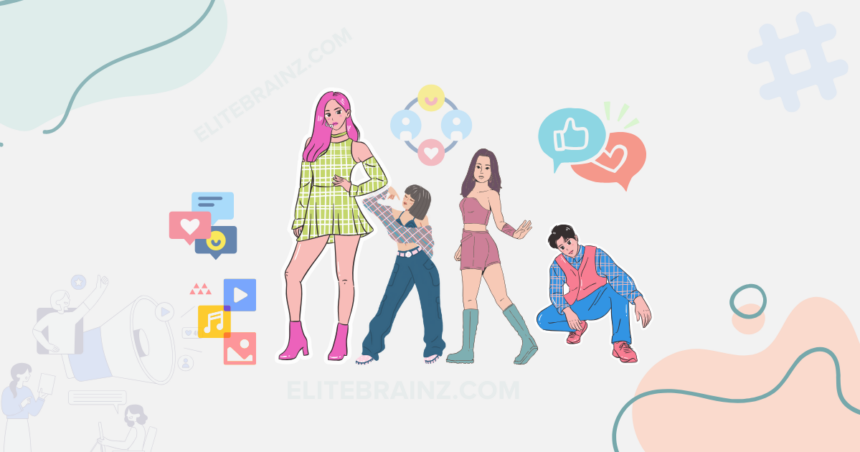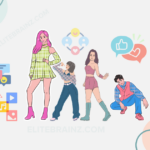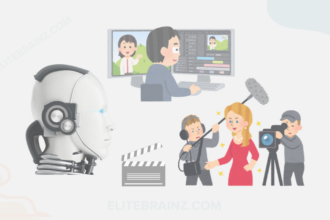Social media has revolutionized the way we view, interact with, and perceive celebrities. Platforms like Instagram, TikTok, Twitter, and YouTube have transformed celebrity culture, making it more accessible, participatory, and, at times, controversial. Here’s an in-depth look at how social media Impact on Celebrity Culture.
Direct Access to Fans
In the past, celebrities relied on traditional media like TV to communicate with fans. Social media has eliminated these intermediaries, allowing stars to directly engage with their audience in real-time.
Example: Platforms like Instagram allow celebrities to share personal moments, photos, and stories, creating an illusion of intimacy.
Impact: Fans feel a closer connection to their favorite stars, enhancing loyalty and engagement.
Rise of the “Everyday Celebrity”
Social media has democratized fame. Anyone with a unique talent, relatable content, or a viral moment can become a celebrity, even without connections to traditional media.
Example: TikTok stars like Charli D’Amelio have risen to global fame purely through their social media content.
Impact: The line between traditional celebrities and social media influencers has blurred, creating a new kind of fame based on relatability and authenticity.
Increased Transparency and Scrutiny
Social media provides celebrities with a platform to share unfiltered aspects of their lives. However, this transparency also invites increased scrutiny and criticism from fans and detractors alike.
Example: Missteps or controversial posts often lead to “cancel culture,” where public backlash can harm a celebrity’s career.
Impact: While social media offers freedom of expression, it also demands careful curation to maintain a positive public image.
Shaping Public Perception
Social media allows celebrities to control their narrative. By sharing their side of a story, endorsing causes, or clarifying rumors, stars can influence how they’re perceived.
Example: Celebrities often use Twitter to respond to controversies or connect with fans during tough times, shaping their public persona.
Impact: The power to directly communicate has made celebrities more humanized, but also more vulnerable to criticism.
Amplification of Trends and Movements
Social media has enabled celebrities to amplify social, political, and cultural movements, often becoming key figures in advocacy.
Example: Stars like Selena Gomez and Dwayne “The Rock” Johnson use their platforms to raise awareness about mental health, environmental issues, and charitable causes.
Impact: Celebrities now play a more active role in shaping societal discussions, influencing millions of followers worldwide.
Pressure to Maintain Relevance
The fast-paced nature of social media demands constant content creation. Celebrities must stay active to remain in the public eye, which can lead to burnout and mental health challenges.
Example: Trends and viral challenges often push stars to produce frequent and engaging content to stay visible.
Impact: The pressure to stay relevant has made celebrity life more demanding than ever before.
The Dark Side: Trolls and Cyberbullying
While social media connects celebrities to fans, it also exposes them to online harassment and trolling. Negative comments, cyberbullying, and invasions of privacy are common challenges.
Example: Many stars have spoken out about the emotional toll of constant online criticism.
Impact: Celebrities must navigate the fine line between sharing their lives and protecting their mental health.
Collaboration with Fans
Social media enables interactive relationships between stars and their audiences. Fans can directly participate in trends, challenges, and campaigns initiated by celebrities.
Example: Musicians like Taylor Swift engage fans through social media by dropping clues about upcoming projects.
Impact: This interaction fosters a sense of community, making fans feel more invested in their favorite stars.
Commercial Opportunities
Social media platforms are now lucrative spaces for celebrities to endorse products, launch brands, and collaborate with companies. Sponsored posts, affiliate marketing, and personal brands have become integral to their income streams.
Example: Kylie Jenner famously leveraged Instagram to grow her beauty empire, Kylie Cosmetics, into a billion-dollar brand.
Impact: Social media has turned celebrities into entrepreneurs, blurring the line between art, fame, and commerce.
Redefining Fame
In the social media era, fame isn’t just about talent or achievements—it’s also about relatability, engagement, and digital presence. Stars are judged as much by their follower count as by their professional accomplishments.
Example: Social media influencers, many without traditional celebrity backgrounds, are now considered as famous as Hollywood actors.
Impact: The concept of fame has shifted, emphasizing personal branding and online influence.
Conclusion
Social media has redefined celebrity culture in ways that are both empowering and challenging. While it offers stars a platform to connect with fans, advocate for causes, and control their narratives, it also demands constant visibility and exposes them to greater scrutiny.
For fans, social media provides unprecedented access to their idols, but it also blurs the line between admiration and intrusion. As this dynamic continues to evolve, the relationship between celebrities and social media will shape not only pop culture but also the broader societal discourse on fame, influence, and responsibility.
Action Step: Whether you’re a fan, influencer, or aspiring celebrity, use social media mindfully. Balance authenticity with boundaries and remember that while fame can be fleeting, genuine connections are lasting.










